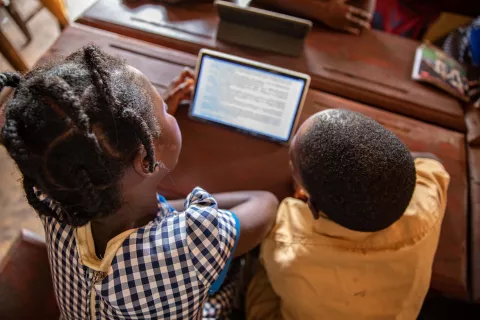Child Well-being in a Digital Age
Trends and outcomes

Highlights
As digital technology becomes more prominent in the lives of children around the globe, the risks and harms that digital technology may pose to children’s well-being is receiving considerable attention. The rapid increase in screen time has been a major concern, including the consequences this might have on children’s social lives as well as their physical and mental health. With the increased reliance on digital technology, particularly during the COVID-19 pandemic, these concerns have only intensified.
In the Middle East and North Africa (MENA), studies have shown a vast increase in digital connectivity in the region even before COVID-19. It is plausible that younger segments of the population, particularly children who grew up with digital technology, are even more immersed in the digital world than adults. Yet, evidence generation on how this connectivity is influencing children and young people’s well-being in MENA remains scarce.
This paper takes stock of existing evidence around children’s use of digital technology in relation to three well-being outcomes: social relationships, mental health, and physical health. It considers both the benefits and risks that may be present in children’s digital experiences, whilst also recognizing that online risks do not automatically turn into harm. It also considers the latest evidence on gaming disorder, which has been highlighted as a particular area of concern by the World Health Organization.





